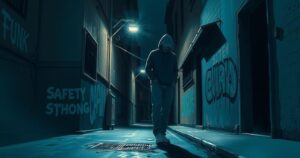John Smyth’s Victims Seek Justice Amid Church Inaction in Zimbabwe

The Nyachuru family seeks justice for Guide Nyachuru, who died in 1992 at John Smyth’s camp in Zimbabwe. Despite the Makin Report urging investigation, no action has been taken, raising concerns of a cover-up. Victims and their families criticize the Church of England’s slow response and lack of support, highlighting ongoing trauma among survivors. Calls for transparency and accountability remain crucial as the church continues to face scrutiny regarding its handling of Smyth’s abuses.
John Smyth’s abuse of children in Zimbabwe has left lasting scars on victims and their families, prompting calls for accountability and justice. Judith Nyachuru, whose brother Guide died under Smyth’s care in 1992, expresses her anguish, stating, “He hurt us. … May his spirit burn in hell!” The family has been waiting for closure, especially after the Makin Report urged the Church of England to investigate Smyth’s actions. However, no progress has been made since the report was published in November, leaving the victims frustrated and fearful of a potential cover-up by church officials.
Douglas Coltart, a lawyer examining Smyth’s abuses since 1993, has also been left in the dark regarding the Church’s promised investigations. He noted his instructions to seek reparations for Guide Nyachuru’s death but observed that no legal actions have been initiated thus far. The Church of England has not publicly commented on the status of the investigation, contributing to growing concerns among victims, estimated to be about 80 in total, and their families about ongoing silence from the church.
Rebekah Read from Leigh Day Solicitors criticized the Church of England for their slow response, suggesting that many victims suffered under Smyth’s abuses far longer than necessary. “These additional investigations cannot come quickly enough,” she said. The Church is blamed for not acting promptly on allegations raised as early as 1982, allowing Smyth continued access to children for decades. The urgency for restitution for those affected in Zimbabwe and South Africa is becoming increasingly critical.
Jason Leanders, another victim, revealed the lasting impacts of Smyth’s abuse, with many survivors too traumatized to share their experiences. Coltart mentioned ongoing psychological issues among victims, emphasizing the Church’s responsibility to provide necessary mental health support. Efforts to address the situation were historically undermined by support from church leaders and political connections, raising fears that the truth remains buried.
Smyth was banned in the UK due to previous allegations of abuse but subsequently continued his harmful actions in Zimbabwe after relocating. He established Zambezi Ministries and perpetuated his abusive practices until authorities intervened following parental complaints in 1993. Coltart’s investigation prompted limited action against Smyth, leading to a tense environment where accurate reporting of abuses was stifled due to fears of legal repercussions.
After fleeing Zimbabwe, Smyth continued to evade accountability until his death in 2018, just before facing questioning. The Church of England faced scrutiny following the Makin Report, leading to the establishment of a commission in South Africa aimed at investigating their past failures. Yet, accusations of self-investigation and potential cover-ups have tarnished the commission’s credibility, calling into question their efficacy and objectivity in addressing Smyth’s abuses.
Overall, the situation surrounding John Smyth’s victims illustrates a profound need for transparency and justice within the Church of England and its affiliates. As victims continue to suffer in silence, comprehensive investigations and support mechanisms must be implemented to aid healing and resolve the lingering trauma from Smyth’s actions. Further delay could exacerbate the pain and distrust among the affected families and communities.
The plight of John Smyth’s victims and their families in Zimbabwe underscores a critical need for accountability and swift action from the Church of England. Despite the Makin Report’s recommendations for an investigation, no significant progress has been made, leading to fears of cover-ups and further victimization. Victims like Judith Nyachuru and Jason Leanders highlight the ongoing psychological trauma resulting from Smyth’s abuses, affirming that the church must ensure justice and restitution for those affected. Without immediate and transparent actions, the gaps in support and justice will continue to haunt these communities, revealing deeper systemic issues within the church’s handling of abuse cases.
Original Source: religionunplugged.com







